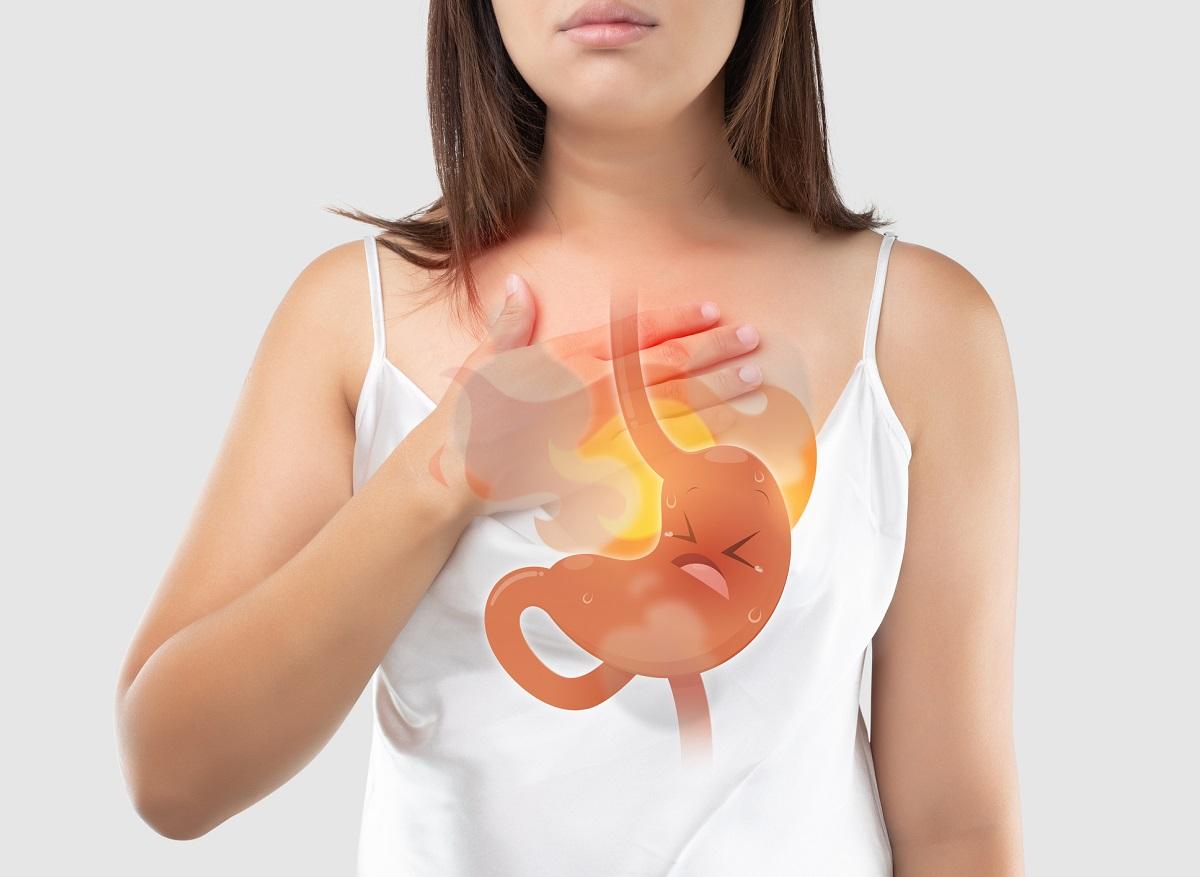
These are the symptoms
One in five Dutch people suffer from it every week and almost everyone knows the feeling: heartburn. To, but also something to keep an eye on. Stomach acid can disrupt the esophagus. Fortunately, there is plenty to do.
A burning pain in the underside of the chest, which starts at the sternum, spreads to the throat and causes a sour or bitter taste in the throat and mouth. The effects of heartburn vary from person to person. For some, it’s nothing more than a little physical discomfort after eating, for others, it’s minutes to hours of painful attacks that pop up all the time and lead to a severe sore throat. Or more…
Acid in the esophagus
Stomach acid is an aggressive liquid, which is intended to digest food quickly and effectively. Your stomach is safely lined with a thick layer of mucus and therefore well protected against it. However, your esophagus – the ‘tube’ from the mouth to the stomach – has to do without such a layer and is therefore vulnerable to the corrosive acid.
To prevent damage from stomach acid, the transition between the esophagus and the stomach is closed. The esophageal sphincter ensures that the transition is only open when a bite of food is on its way to the stomach. Then he closes the esophagus neatly again.
Sometimes, however, the seal fails and stomach acid flows into the tube. This causes the burning sensation, throat problems, dental problems (stomach acid can damage enamel), coughing and, in extreme cases, irritation or inflammation of the esophagus. Lifestyle and eating habits often lead to more stomach acid being produced or that the esophageal sphincter does not hold back enough acid.
Orange juice and carbon dioxide
Alcohol, orange juice, carbon dioxide and spicy food stimulate the stomach to produce stomach acid. Eating fatty foods also causes this, but it also makes the stomach work more slowly. As a result, there is more acid in the stomach for a longer period of time. If you want to prevent heartburn, it is better not to eat large amounts. The stomach and esophagus then suddenly have to take full and prolonged action.
It is therefore better to eat smaller portions six times a day than one large one three times. Eating just before bedtime doesn’t help either; in a supine position, stomach acid flows more easily into the esophagus. Smoking and medicines also relax the functioning of the esophageal sphincter, making it easier for stomach acid to flow into the esophagus.
Stress and tight clothing
stress has no direct effect on gastric acid production, but indirectly does. It changes eating habits: one person eats too much, the other too little, while stomach acid production continues. Both can therefore make the symptoms worse.
Other indirect causes for heartburn include tight clothing and bending over. Tight clothing can press on the stomach, pushing up the acidic stomach contents.
Stomach contents are also pushed upwards when bending over. In addition, the stomach is more horizontal, making it easier for stomach acid to enter the esophagus. It is therefore better to get down on your knees to pick something up.
Heartburn and obesity
Finally, obesity and the occurrence of heartburn do not go together. Too much pressure on the abdomen can push the contents of the stomach up and cause stomach acid to back up into the esophagus.
In addition, can overweight lead to a tear in the diaphragm: the flat muscle plate that separates the thoracic and abdominal cavities. The esophagus runs through a hole in the diaphragm into the abdominal cavity. If that hole ruptures and becomes larger due to being overweight, it can reduce the functioning of the esophageal sphincter muscle.
Preventing heartburn therefore starts with adjusting lifestyle. Especially a healthier and calmer life. Take your time to eat and chew well. Don’t do all kinds of things at once and watch out for stress.
If that has no effect, ask at the drugstore for a antacid or go to the doctor. There are medicines that reduce stomach acid in a course of 2 to 6 weeks.
Sources:
stomachacid.nl
Your Stomach The Boss?
Stomach Liver Bowel Foundation
Naturopathy practice

















